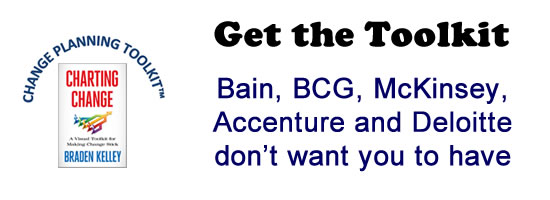The New ‘Golden Age’ of Medicine

There’s No Better Time to Be a Doctor
Victor Fuchs and Mark Cullen published an article in JAMA questioning the impact changes in health care systems have on doctors. The authors argue that the medical education establishment should respond to such changes with curriculum reform that includes, among other things, health economics and population health. They further provide a short history of health care policy and structure and discuss how it has evolved from an unregulated industry to one that is now increasingly corporatized. They note the rise in employed physicians and state: “Physicians might become less professional, but their professional role could increase as their entrepreneurial role decreases.â€
It seems to me there is confusion about physician entrepreneurship, its definition, and whether it represents a threat to professionalism. I’m not alone in my speculation. Is a physician entrepreneur someone who starts and runs a business, or is it something more?
- Entrepreneurship is the pursuit of opportunity with scarce, uncontrolled resources. The goal of all entrepreneurs, including physician entrepreneurs, is to create user-defined value through the deployment of innovation using a VAST (click here for more info) business model.
- Innovation has both a qualitative and quantitative component. It refers to doing something new, or something old in a new way, that creates user-defined value that is a significant multiple of the competitive offering. Sick care sorely needs innovation that is not incremental or sustaining, but rather significantly adds at least 10 times the present value to have an impact.
- Physician entrepreneurship is not the same things as private practice nor is it fundamentally about practice management. The increasing rate of employed physicians should not be interpreted, as Fuchs and Cullen imply, as decreasing the professional role of doctors . To the contrary, when entrepreneurism is done properly, it enhances medical professionalism.
- There are many different goals and roles for physician entrepreneurs (a category that includes small- to medium-sized business owners in private practice, technopreneurs, social entrepreneurs, intrapreneurs (i.e., employed physicians acting like entrepreneurs), freelancers and consultants, and physician investors). Social entrepreneurship has a long history of physician involvement, and business school courses in social entrepreneurship are expanding. (Here is an example of how one doctor can make a difference.) Roles can vary as well. Some physician entrepreneurs are problem seekers, others are problem solvers. There are also storytellers, money finders, scorekeepers, social connectors, risk managers, and business developers.
- Employed physicians, whether academic or non-academic, have the potential to be as entrepreneurial as their colleagues who are in independent practice.
- While medical education reform is necessary, expecting medical students to master health economics and population health is unrealistic. Medical schools need to be part of entrepreneurial universities, with the goal of instilling an entrepreneurial mindset in all graduates, including health professionals. To that end, medical schools and their affiliated graduates schools should rethink how they teach. They should practice technology transfer and commercialization, and give faculty innovators the tools, incentive, and recognition to pursue innovation scholarship.
- Physician entrepreneurship enhances medical professionalism. It does not degrade it, so long its practitioners understand and resolve the conflicts between the ethics of medicine and the ethics of business. Violating the patient or public trust by self-dealing or not disclosing conflicts of interest degrades any profession that has a fiduciary relationship with its customers or clients.
- Physician entrepreneurs create value for patients in many ways outside clinical care. The upcoming generation of medical students, residents, scientists, and engineers understand that better than graduate school faculty and administrators—and they have engaged in bottom-up efforts to fill the gaps in their education and experiences.
- Every threat to the existing practice of medicine represents an opportunity for physician entrepreneurs to help patients by adding value.
- Every industrialized country is grappling with how to provide its citizens with health services given scarce resources. Innovation and entrepreneurship, fostered by rules that catalyze them, will be the solution. Physician entrepreneurs are making a difference. This non-profit group that is trying to eliminate the stigma of mental illness in Nigeria is just one of many examples.
The “golden age” of medical practice is being replaced by the “golden age” of physician entrepreneurship. Entrepreneurship offers another way to help patients—arguably, there is no better time to be a doctor.
Wait! Before you go…
Choose how you want the latest innovation content delivered to you:
- Daily — RSS Feed — Email — Twitter — Facebook — Linkedin Today
- Weekly — Email Newsletter — Free Magazine — Linkedin Group
 Arlen Meyers, MD, MBA is the President and CEO of the Society of Physician Entrepreneurs at www.sopenet.org and co-editor of Digital Health Entrepreneurship
Arlen Meyers, MD, MBA is the President and CEO of the Society of Physician Entrepreneurs at www.sopenet.org and co-editor of Digital Health Entrepreneurship
NEVER MISS ANOTHER NEWSLETTER!
LATEST BLOGS
Credit Card Shenanigans
It must be great to be in the credit card business in the United States. Demand is relatively inelastic and regulation is lax, so you can charge whatever you want for an interest rate, increase your fees once or twice a year, and make additional money off cash withdrawals and foreign exchange transactions.
Read MoreBuilding an Experience
As people become ever more immune to traditional advertising and marketing, branding will become more important. Branding is all about building an emotional connection with customers. Making the decision to follow a strategy focused on building a brand is not without peril, however, as it means that you will have to choose to not do certain things, like pursue a low price strategy.
Read More- « Previous
- 1
- …
- 4,132
- 4,133
- 4,134




